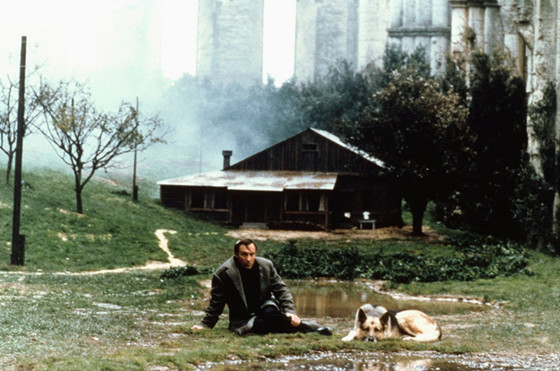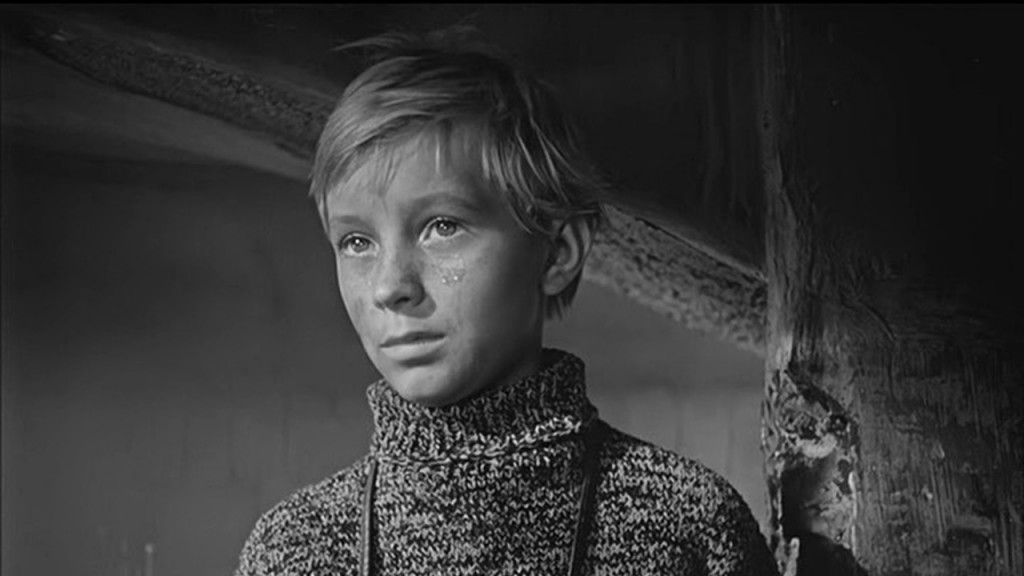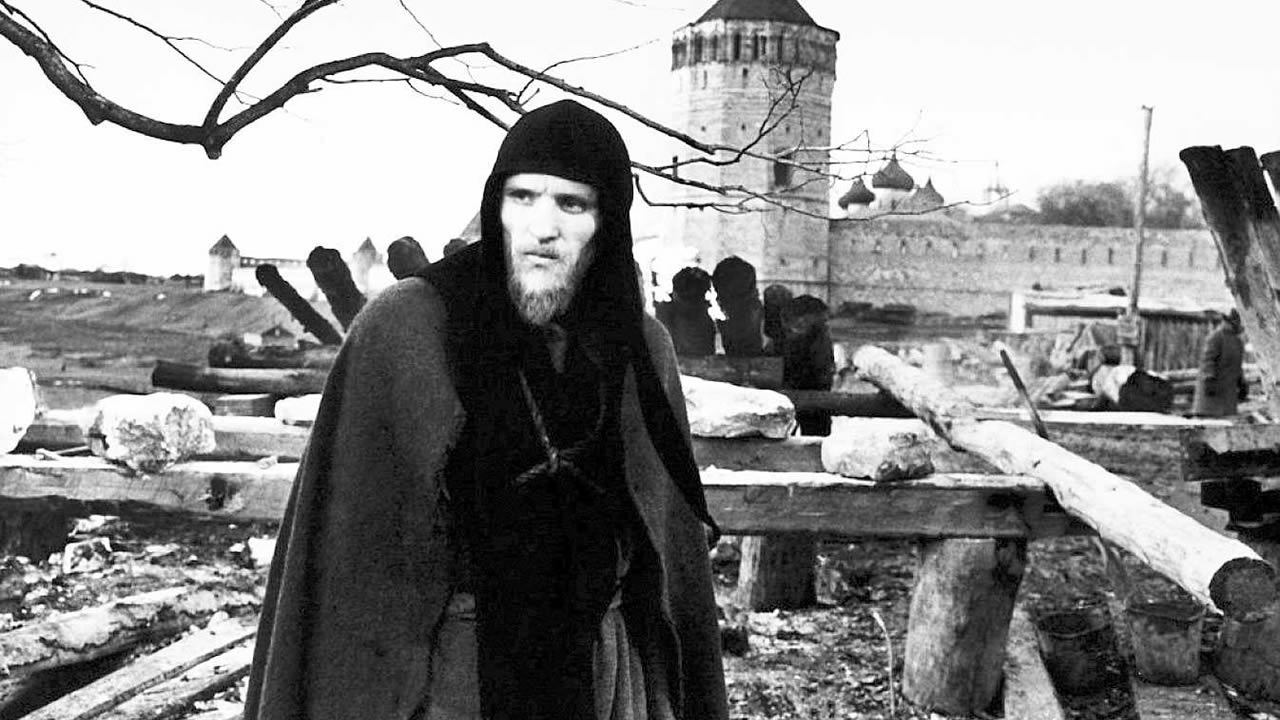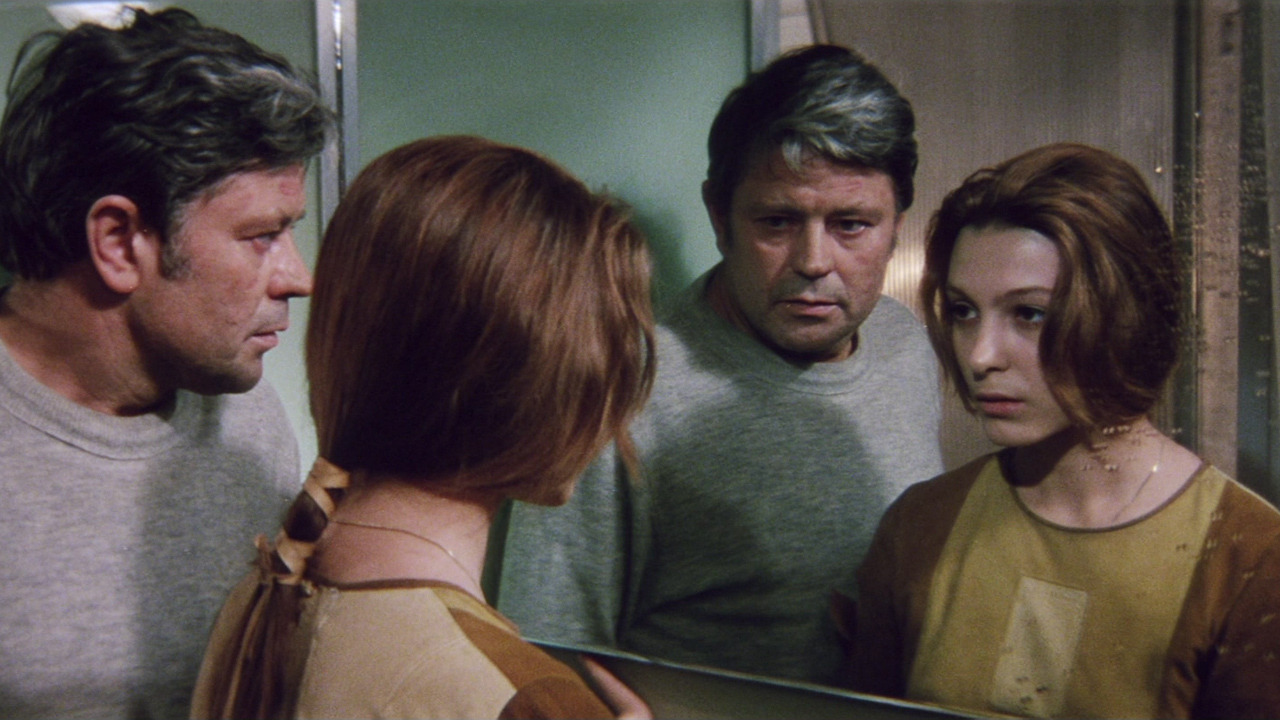
Andrei Tarkovsky was born to Arseny Tarkovsky, a poet, and Maria Vishnyakova, a well-educated literary woman, in 1932 Soviet Russia. His life would be one of poetic vision and his father’s interests would influence his private life and his films. He attended school alongside poet Andrey Voznesensky, and he studied piano, art, and ultimately filmmaking.
In film school, Andrei’s first short film was based on an Ernest Hemingway short story, and his others were his own creations until he teamed up with Andrei Konchalovsky, famed screenwriter and director. Tarkovsky’s work would eclipse Konchalovsky’s, as well as every other Russian filmmaker’s, with the possible exception of Sergei Eisenstein.
What brought Andrei such success? His films are beautiful, featuring long, iconic tracking shots of beautiful Russian and Scandinavian landscapes. His characters grow and he clearly pays close attention to their development; and the musical and cultural aspects of his films are impressive and allusive in a way that few other filmmakers can match. Those aspects notwithstanding, it is Andrei’s poetic and philosophical depth that is unparalleled, making him an icon and role model for so many successful filmmakers today.
His films analyze meaning, materiality, love, epistemology, metaphysics, and faith. In what is to follow, I will analyze in brief his 7 greatest films and attempt to bring out the key philosophical elements of each. If you want to deepen your understanding of life, faith, science, reason, or humanity, I recommend you watch any (or all!) of these films.
1. Ivan’s Childhood

Andrei’s first major film, Ivan’s Childhood is unlike his others in its relatively straightforward plot and traditional tropes. It follows a 12-year-old orphan, Ivan (Nikolay Burlyaev), fighting for the Soviet army in WWII.
Ivan serves as a spy behind German front lines. He builds relationships with several Soviet officers who try to care for him, and it is in these relationships that viewers learn Ivan has no regard for himself. He is careless, a synonym for his incredible bravery, because of awful events in his past, primarily the German atrocities which took the lives of his family members.
What is Tarkovsky saying in his creation and development of Ivan? He weaves a complicated depiction of human nature, as Ivan appears erratic and seems to have major mood swings. But, the film is less about Ivan’s nature as it is about what causes Ivan to behave as he does. It is, as Jean-Paul Sartre penned, that “war kills those who make it even if they survive it,” but it is also that human nature and human life is incredibly fragile and always affected by the evils of others.
Without something to cling to, Ivan is left totally alone and thus without any cares for his life. As a 12-year-old his family had naturally been his anchor, and without them he is suicidal. Tarkovsky’s later films will analyze other foundations for life to keep the existential angst at bay, particularly art and faith.
2. Andrei Rublev

Tarkovsky’s next film Andrei Rublev would take a different turn, as is apparent with its abstract prologue which follows artist Efim (Nikolay Glazkov)as he attempts to escape an angry mob via a hot-air balloon. In many ways, this is foreshadowing for Tarkovsky’s departure from the Soviet Union, but it is intended as an allegorical examination of Rublev and how he at times is depicted running from his work.
The film is then divided into 8 parts, which depict the philosophical, spiritual, and motivational struggles of Rublev. These parts also depict his growth, which is necessary for the completion of his final project: the church bell and what it symbolizes.
So what exactly is the film about? The film ultimately is about faith, particularly faith as experienced by Tarkovsky, and about the narrative of the artist as creator. Rublev creates throughout the film, and nearly all of his creations are destroyed.
We see this in nearly every chapter, and it is so damning that Rublev takes a vow of silence (as Tarkovsky would later do in effect by destroying a film he had worked on because of frustrations with the Russian government, preventing it from being shown in Russia) only to be brought to speech by a great work of art.
Rublev struggles and is tormented in the way all too many modern artists are and throughout his struggles he keeps his faith. In the epilogue, we see the reward for this faithfulness—timeless works of art, creations that prove the permanence of his faith.
3. Solaris

Tarkvosky’s next film would be a daring Sci-Fi adventure, in ways as ambitious as 2001: A Space Odyssey, but by all accounts much more pointed in its meaning. It follows Kris Kelvin (Donatas Banionis) as he travels to a space station orbiting the oceanic Solaris. The ocean of Solaris is unlike any other: it is sentient, manipulative, and psychologically powerful.
Needless to say, we see a lot of weird things going on, and we hear of weirder things happening off screen. Shot in a beautifully and ingenious way (so as to make it age well), Solaris is an amazing film well worth watching and rewatching.
What is the film questioning? Love, to be sure, but more importantly Solaris questions knowledge and personal identity. We see duplicates of Khari (Natalya Bondarchuk), Kelvin’s late wife, which the ocean has created to torment Kelvin. But are they duplicates? They are identical to Khari, both physically and mentally.
They remembers things that Khari remembers, love Kelvin as Khari did, and acts as Khari would. Is she a different person and, if so, what does it mean for Kelvin to know that she is? Tarkovsky’s answer may be depressing, but it’s an interestingly practical one given the nature of his other films.